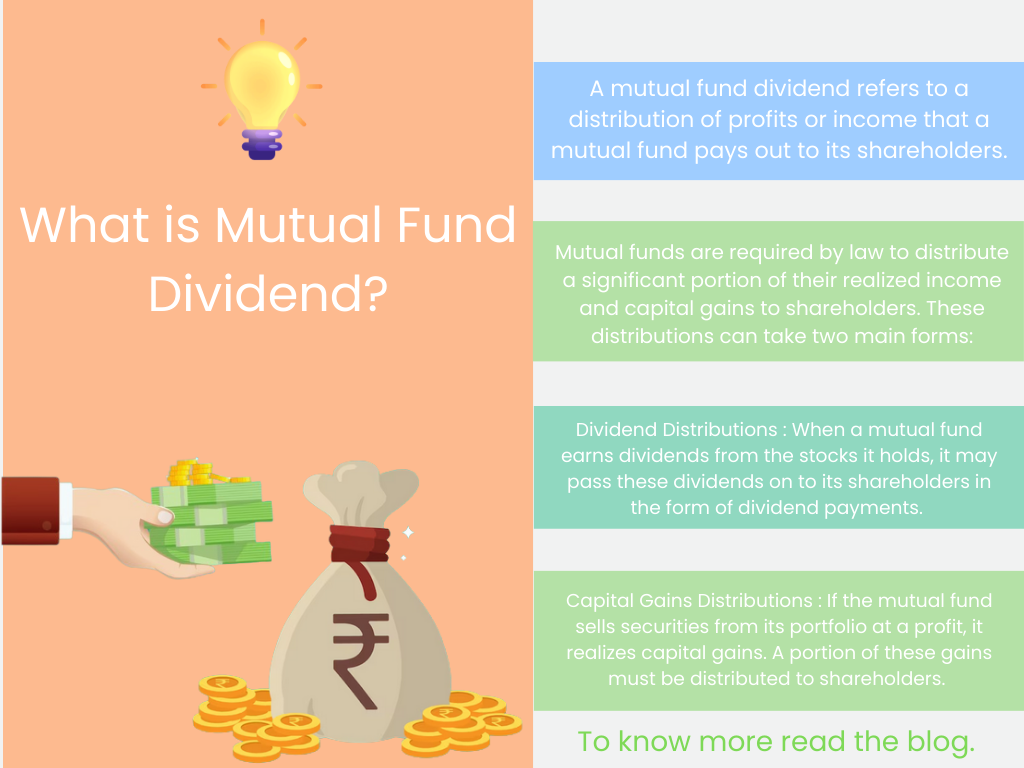What is Mutual Fund Dividend?
A mutual fund dividend refers to a distribution of profits or income that a mutual fund pays out to its shareholders. Mutual funds pool money from various investors to invest in a diversified portfolio of assets such as stocks, bonds, and other securities. As these underlying investments generate income—such as interest from bonds or dividends from stocks—the mutual fund itself earns money.
Mutual funds are required by law to distribute a significant portion of their realized income and capital gains to shareholders. These distributions can take two main forms:
Dividend Distributions: When a mutual fund earns dividends from the stocks it holds, it may pass these dividends on to its shareholders in the form of dividend payments. This is similar to how individual stocks pay dividends to their shareholders. Dividend distributions are often paid on a regular schedule, such as quarterly or annually.
Capital Gains Distributions: If the mutual fund sells securities from its portfolio at a profit, it realizes capital gains. A portion of these gains must be distributed to shareholders. Capital gains distributions can also be categorized as "short-term" (if the securities were held for less than a year) or "long-term" (if held for more than a year), with potentially different tax implications for investors.
It's important to note that these distributions are typically subject to taxation. The tax treatment of mutual fund dividends and capital gains depends on various factors, including the type of account in which the mutual fund is held (e.g., taxable brokerage account, individual retirement account) and the nature of the distributions.
Investors can choose to receive these distributions in cash or reinvest them back into the mutual fund, which can help to compound their investment over time.
When considering investing in a mutual fund, it's crucial to understand the fund's distribution policies and potential tax implications. Additionally, factors like the fund's investment objectives, performance, fees, and risk profile should be evaluated before making an investment decision.


